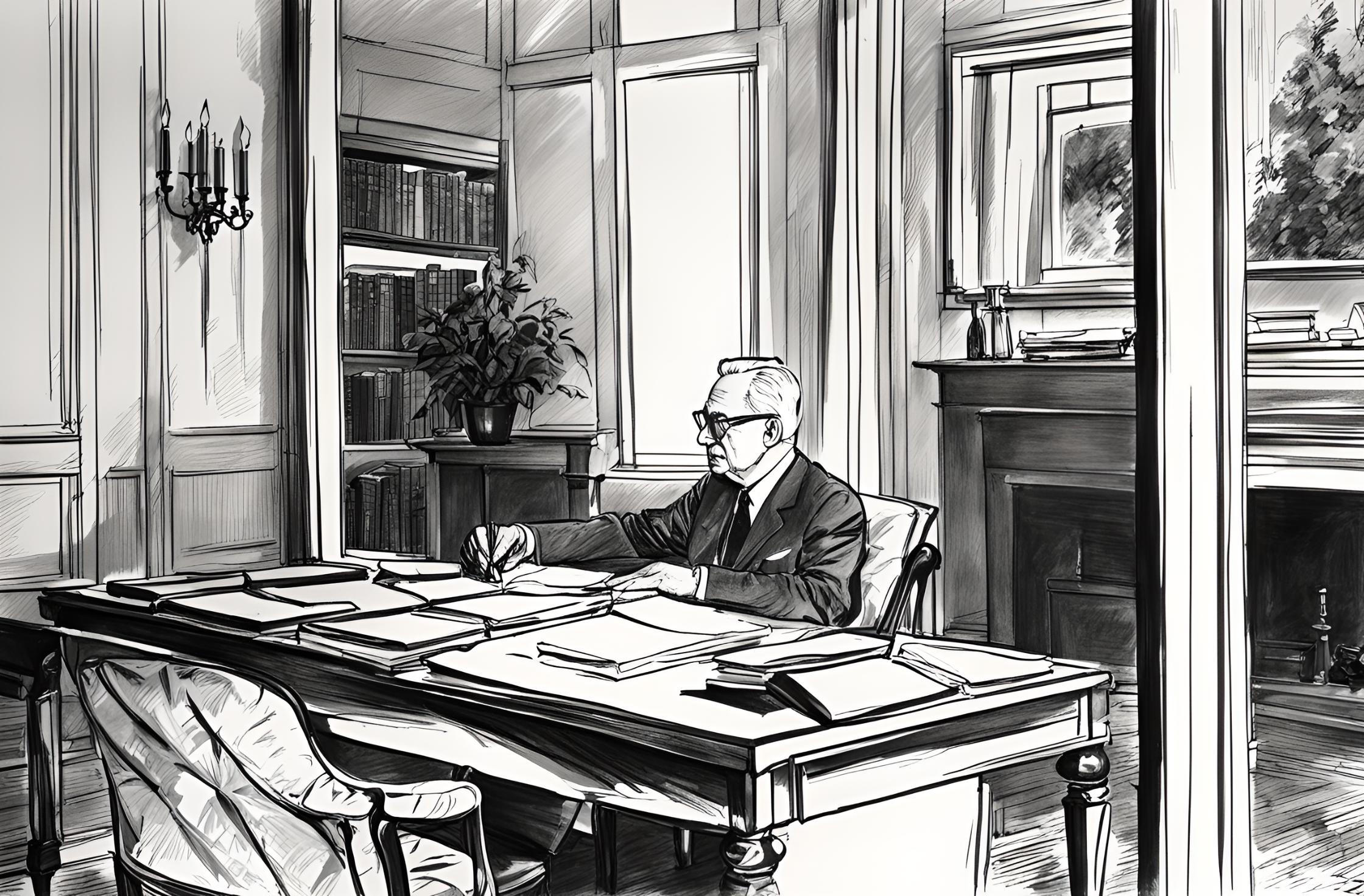Flashback to November 1
American History

1960
While campaigning for President of the United States, John F. Kennedy announces his idea of the Peace Corps.
Read moreUnderstanding an integral part of American history takes us back to 1960, when John F. Kennedy, then campaigning for the President of the United States, introduced the concept of the Peace Corps. A monumental moment at the University of Michigan stirred his vision into flame. Today, we will delve into JFK’s journey leading up to this historic announcement, the basis of the Peace Corps initiative, and its significant impacts.
John F. Kennedy was one of the most charismatic figures who shaped modern American politics. While campaigning for the Presidential elections in 1960, his journey took him to the University of Michigan. In the early hours of October 14, 1960, he challenged the 10,000 college students gathered there, asking if they would be willing to serve their country and the cause of peace by living and working in developing countries worldwide. This marked the dawn of the Peace Corps—an idea that Kennedy formally announced on November 1, 1960. He didn’t imagine then how his idea would transform countless lives and become a powerful mark of American diplomacy.
The core philosophy behind the Peace Corps was deeply rooted in Kennedy’s vision of international service. The world was in the grips of the Cold War during this period, with rising tensions between the United States and the Soviet Union. JFK’s initiative was a proactive response to ensure global peace and prosperity. The Peace Corps was aimed to promote better mutual understanding between Americans and people of other countries. This agenda was in alignment with Kennedy’s perspective of implementing global friendly policies that would indirectly be a soft power strategy against the Communist block in the scenario of the Cold War.
Established in 1961 through an executive order, the Peace Corps functioned under three main goals: To help the people of interested countries in meeting their need for trained men and women; To help promote a better understanding of Americans on the part of the peoples served; and To help promote a better understanding of other peoples on the part of Americans. Its mission to boost international relations and establish American soft power resonates strongly even today with over 200,000 Americans having served in 141 countries since its inception.
With its intriguing blend of idealism, patriotism, and internationalism, John F. Kennedy’s announcement of the Peace Corps wasn’t just an innovative component of his Presidential campaign. Instead, it symbolized a progressive mindset that was unafraid to approach global concerns beyond the traditional avenues of politics and military power. It was a demonstration of American goodwill that extended far beyond the borders of the United States and reflected a bold approach towards international diplomacy.
The impact of the Peace Corps is far-reaching. Even more so, the personalities and lives touched and shaped by this program are perhaps the most significant testament to its success. Be it the volunteers who dedicated their time and effort to bring about change or the communities that benefitted from their services, the Peace Corps has been a real example of the power of diplomacy and service. Volunteering members of the Peace Corps have made significant contributions in areas of education, health, community economic development, agriculture, environment, and youth development.
the announcement of the Peace Corps by John F. Kennedy during his 1960 Presidential Campaign was a remarkable milestone in American history. Not only did it redefine U.S. diplomacy but it also emphasized the role of service in promoting global understanding. All these years later, the Peace Corps stands as a unique embodiment of JFK’s vision, reflecting his enduring legacy in the realms of public service and international peace. As we look back at this critical moment, we are reminded of the power of ideas and the role of service in shaping our global community. An idea that was born in a moment of inspirational eloquence eventually matured into a cornerstone of America’s approach to international relations.
The campaign promise turned into a testament of dedication to peace that continues to foster international friendship and epitomize a distinct form of diplomacy synonymous with the United States. JFK’s Peace Corps announcement remains a significant marker in the annals of history, reinforcing the message of unity, and pushing us to consider how we each can play a role in promoting peace and understanding in our world.
We strive for accuracy. If you see something that doesn't look right, click here to contact us!
Sponsored Content

Puerto Rican nationalists (Collazo…
On November 1, 1950,…

While campaigning for President…
On November 1, 1960,…

First atomic explosion witnessed…
Witness the haunting historical…

Fortifications built on Angel…
Discover the pivotal role…

